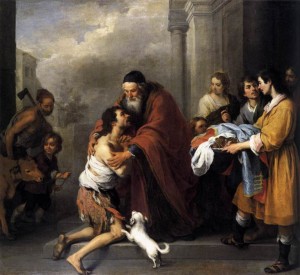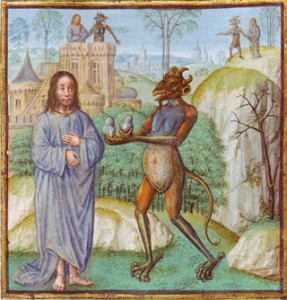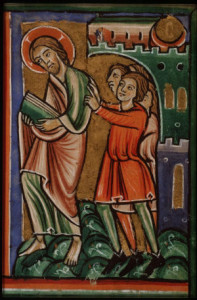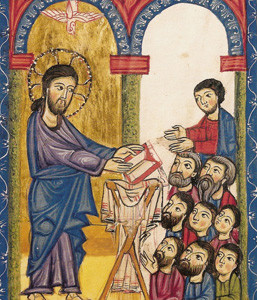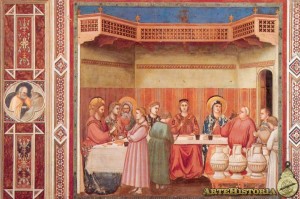Thoughts on Today’s Lessons for March 13, 2016

Mary Magdalene, Jan van Scorel, c. 1530. Oil on panel, Rijksmuseum Amsterdam.
As Palm Sunday and Holy Week draw near, today’s readings touch on the theme of moving toward a goal with God’s help. Isaiah envisions the people in exile, defeated and hopeless, unable to get up; “extinguished, quenched like a wick.” But in God there is hope for new ways. God will make a path in the wilderness and create rivers in the desert, protecting God’s chosen people and bringing them home.
Today’s Psalm echoes the hope that we heard in the Isaiah passage, as seen from a future joyous day when all things old have been made new again. God has restored Israel’s fortunes, filling the people with laughter and shouts of joy. Those who left the holy city, weeping under burdens that seemed too great to bear, now return in joy, bringing in a bountiful harvest.
Second Reading: Philippians 3:4b-14
Once a proud Pharisee and persecutor of Christians, Paul thought he had a lot to boast about. But now that he knows Christ, everything has changed. That which was old is now rubbish to him; having gained righteousness from God through faith in Jesus, his new hope rests in the resurrection. As Isaiah advised Israel, so Paul urges the Christian converts of Philippi in Greece: Forget what lies behind. Press on toward the goal of resurrection and life through God’s call in Jesus.
Gospel: John 12:1-8
To grasp the powerful context of this familiar narrative, re-read John’s verses just before and just after the story of Mary weeping as she anoints Jesus’ feet with expensive perfume. Jesus has just raised Lazarus from the dead, causing such an uproar that the chief priests and Pharisees decided to kill Jesus to keep the Romans from stepping in. Just after today’s verses, the temple authorities decide to kill Lazarus, too, because his miraculous return from the dead is inspiring people to follow Jesus. Jesus is at risk of death. He warns his friends that they won’t always have him with them. But don’t mistake the meaning of Jesus’ words, “You always have the poor with you.” This is not an argument against helping the poor. On the contrary, it is a direct quote from Torah, God’s explicit commandment that we must always open our hands to the poor and needy neighbors in our land.

